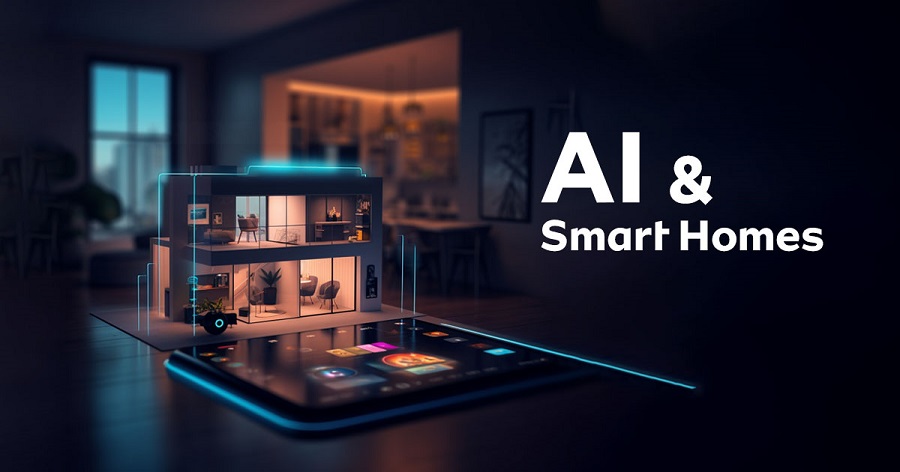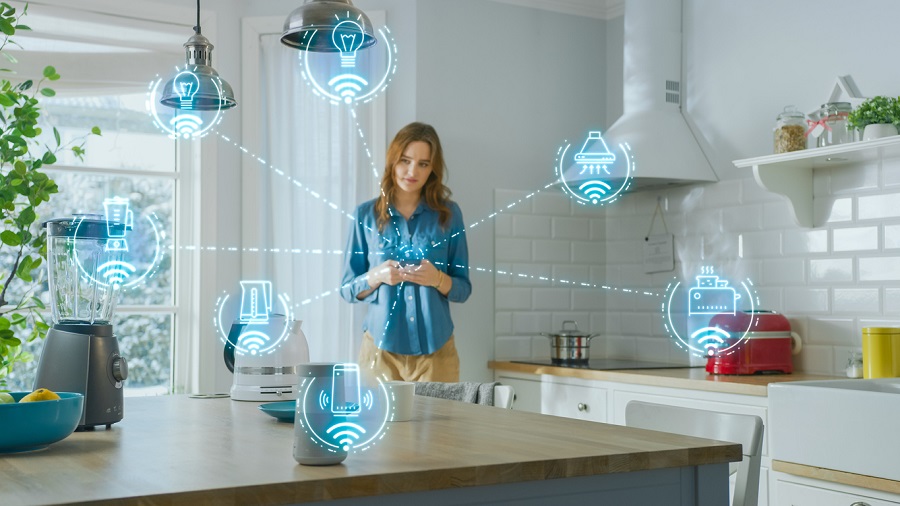Empowering Homes with AI: The Revolution of Smart Living

The Dawn of the Smart Home Era
Our homes, traditionally our sanctuary of safety and comfort, are undergoing a revolutionary transformation. With technological advancements, especially in artificial intelligence (AI), the concept of a ‘smart home’ has transitioned from science fiction to an attainable reality. Imagine a living space that not only responds to your commands but also anticipates your needs and preferences, optimizing your living experience.
Smart Home Components & AI Integration
Device Interconnectivity
The foundation of any smart home is the network of interconnected devices. From thermostats to doorbells, modern homes are increasingly filled with devices connected via the Internet of Things (IoT). This connectivity allows for seamless integration and control.
AI-Powered Automation
Automation is the next layer of sophistication in smart homes. AI plays a pivotal role here, enabling devices to learn from user behaviors, adapt to routines, and eventually make decisions to enhance efficiency and comfort. For instance, smart thermostats can adjust temperatures based on your habits, or lights can be programmed to mimic sunrise, gently waking you up.
Voice Assistants & Control
Voice-controlled assistants like Alexa, Siri, or Google Assistant are the interfaces through which many users interact with their smart homes. Leveraging advanced AI algorithms, these assistants process natural language, execute commands, and even engage in conversations, making home control intuitive and hands-free.
Benefits of AI-Driven Smart Homes
Enhanced Comfort & Convenience
Smart homes, powered by AI, take convenience to new heights. Whether it’s setting the perfect ambiance with lighting and music, regulating home temperature, or having coffee ready when you wake up, AI ensures your home is always in sync with your preferences.
Energy Efficiency & Sustainability
AI-driven homes are not just about luxury; they play a critical role in sustainability. By analyzing usage patterns and optimizing appliance operations, AI ensures energy conservation, leading to reduced bills and a smaller carbon footprint.

Challenges and Considerations
Data Privacy & Security
As with all interconnected devices, smart homes present challenges related to data security and privacy. Ensuring robust encryption, keeping software updated, and being informed about data policies are vital to maintain a secure smart home environment.
Dependency & Over-automation
While automation brings convenience, there’s a thin line between comfort and over-dependency. It’s essential to strike a balance and ensure that while enjoying the benefits of AI, we’re not losing touch with essential life skills or compromising our mental well-being.
Initial Investment & Integration
Setting up a holistic smart home environment requires significant initial investment, both in terms of time and money. Choosing the right devices, ensuring compatibility, and integrating them for a seamless experience can be a daunting task for many.
Looking Forward: The Future of Smart Living
As AI technology evolves and becomes even more integrated into our daily lives, the potential for smart homes is boundless. We’re heading towards an era where our homes will not just be living spaces but intelligent entities that evolve with us, understanding, learning, and enriching our life experiences.
Embracing AI in our homes is not just a trend but a glimpse into a future where technology and human life intertwine in harmony, creating living spaces that truly understand and cater to our unique needs and desires.
